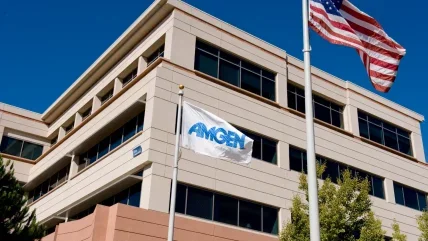
Amgen has reported positive results from the Phase 2 trial of its investigational weight loss drug, MariTide (maridebart cafraglutide), in overweight or obese patients.
The trial showed up to 20% average weight loss after 52 weeks in people with obesity or overweight without Type 2 diabetes.
Despite promising findings, the results did not meet investor expectations, as reported by Reuters. The trial results were compared with those of Novo Nordisk’s Wegovy and Eli Lilly’s Zepbound, currently available in the market.
MariTide, formerly known as AMG 133, is a subcutaneously administered antibody peptide conjugate, delivered monthly or less frequently.
The treatment did not demonstrate a weight loss plateau, suggesting that further weight loss is possible beyond the 52-week period.
In patients with both obesity or overweight and Type 2 diabetes, MariTide led to up to 17% weight loss, without a weight loss plateau, and reduced average haemoglobin A1C (HbA1c) by up to 2.2%.
According to Amgen, these results indicate MariTide’s potential for long-term weight loss benefits. Its competitors, Wegovy achieved a 15% weight loss over 68 weeks, while Zepbound showed a 22% loss over 72 weeks.
Additionally, J.P. Morgan analyst Chris Schott noted that about 11% of patients discontinued MariTide due to adverse side effects, compared to 6% discontinuations in late-stage studies of Zepbound.
Despite these concerns, MariTide demonstrated robust and clinically meaningful improvements in cardiometabolic health across all doses.
Additionally, there were no significant increases in free fatty acids, and MariTide did not affect bone mineral density.
Schott, has been quoted by Reuters, as saying: “While MariTide is clearly effective and offers less frequent dosing, the bar for efficacy in this class continues to rise.”
Amgen chief scientific officer and research and development executive vice president Jay Bradner said: “We are very excited by MariTide’s differentiated profile, with clinically meaningful attributes of substantial and progressive weight loss, monthly or less frequent dosing, significant improvements in cardiometabolic parameters and strong reduction of HbA1C.
“These results provide us confidence to initiate MARITIME, a Phase 3 programme across obesity and a number of related conditions, providing a unique potential new treatment option for patients.”
The ongoing Part 2 of the Phase 2 study is exploring MariTide’s effects beyond 52 weeks.
Over 90% of eligible patients have chosen to continue in Part 2 of the study, the American drugmaker announced.






